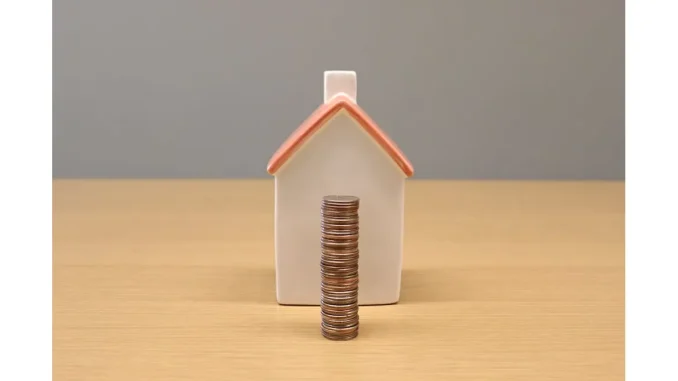
In a transformative revelation poised to reshape household energy management in the United Kingdom, millions of families are being urged to elevate their Energy Performance Certificate (EPC) rating to ‘C’. This strategic upgrade promises potential annual savings of up to £550, offering much more than financial relief—it’s a decisive step towards a sustainable and energy-efficient future for the nation.
The EPC serves as a critical measure of a property’s energy efficiency, providing key insights into energy consumption, costs, and recommendations for enhancing efficiency. Mandated during property transactions, EPCs ensure that buyers, renters, and builders make informed decisions regarding energy performance. In Scotland, EPCs must be prominently displayed within the property, underscoring transparency and public awareness.
EPC ratings range from A (the most efficient) to G (the least efficient) and remain valid for a decade. Upgrading to an EPC rating of ‘C’ can lead to significant energy cost reductions, potentially lowering annual bills by up to £550 per household. Properties currently rated ‘E’ or ‘F’ can still see savings close to £400 and £550 respectively, highlighting the substantial financial impact of improving energy efficiency.
Central to boosting energy efficiency is effective insulation. Proper insulation can dramatically reduce utility bills and enhance home comfort, particularly during the winter months. However, renters often face challenges in implementing energy-saving measures due to limited control over property modifications. Dr. Simon Cran-McGreehin from the Energy and Climate Intelligence Unit (ECIU) underscores the vital role of insulation in maintaining home warmth and reducing energy costs.
The UK’s heavy reliance on gas for heating and energy generation further complicates efforts to achieve net-zero emissions targets. Transitioning towards renewable energy sources and reinforcing home insulation are critical steps in reducing dependence on foreign gas imports and curbing carbon emissions. The ECIU emphasises the importance of EPC upgrades in fostering long-term energy savings and environmental sustainability.
Efforts to enhance energy efficiency benefit not only individual households but also contribute to broader national goals of reducing gas dependence and achieving net-zero emissions. EPC upgrades offer invaluable guidance on optimising energy efficiency, making them indispensable for households keen on making sustainable choices and cutting costs in the long haul.
The potential for substantial energy savings through EPC upgrades underscores the importance of prioritising energy efficiency in homes across the UK. By proactively enhancing insulation, reducing energy consumption, and transitioning to renewable energy sources, households can reap financial rewards while contributing to a more sustainable and environmentally conscious future.
A recent study by the ECIU has highlighted the potential for significant reductions in energy bills if UK households upgrade to an EPC rating of ‘C’. The study estimates that annual savings of up to £200 per household can be achieved, underscoring the transformative impact of energy efficiency improvements.
However, the most substantial savings are likely to be realised by properties with lower EPC ratings. For ‘E’ rated properties, potential savings could reach nearly £400, while ‘F’ rated properties stand to gain an impressive £550 annually. This compelling data presents a strong case for households to consider investing in EPC upgrades to secure long-term financial benefits.
Dr. Simon Cran-McGreehin from the ECIU highlights the critical role of proper insulation in enhancing home energy efficiency. For renters, implementing energy-saving measures can pose challenges, underscoring the need for supportive policies to aid all segments of the population in achieving energy efficiency goals.
As winter approaches, the importance of home insulation becomes even more pronounced. Poorly insulated properties face a heightened risk of increased energy bills during the cold months. The UK’s heavy reliance on gas has long been a concern, prompting calls for a shift towards renewable energy sources to pave the way for a net-zero future.
Transitioning to net-zero emissions requires not only reducing gas dependence but also bolstering renewables and implementing energy-saving measures across all sectors. Proper insulation emerges as a key player in the pursuit of affordable energy bills, offering households a tangible way to trim costs while reducing their carbon footprint.
The ECIU study serves as a timely reminder of the potential savings awaiting UK households willing to embrace energy efficiency upgrades. With millions of homes across the country poised to benefit from improved EPC ratings, the path towards a more sustainable and cost-effective energy future appears clearer than ever. As the winter chill sets in, the message is resoundingly clear: investing in insulation today could mean a healthier bank balance tomorrow.
Upgrading to an EPC rating of ‘C’ offers a multifaceted solution to the pressing issues of high energy costs and environmental sustainability. By embracing energy efficiency improvements, UK households can not only enjoy significant financial savings but also play a crucial role in the nation’s journey towards a greener future. The convergence of financial prudence and environmental responsibility makes this move a win-win for all.


Be the first to comment